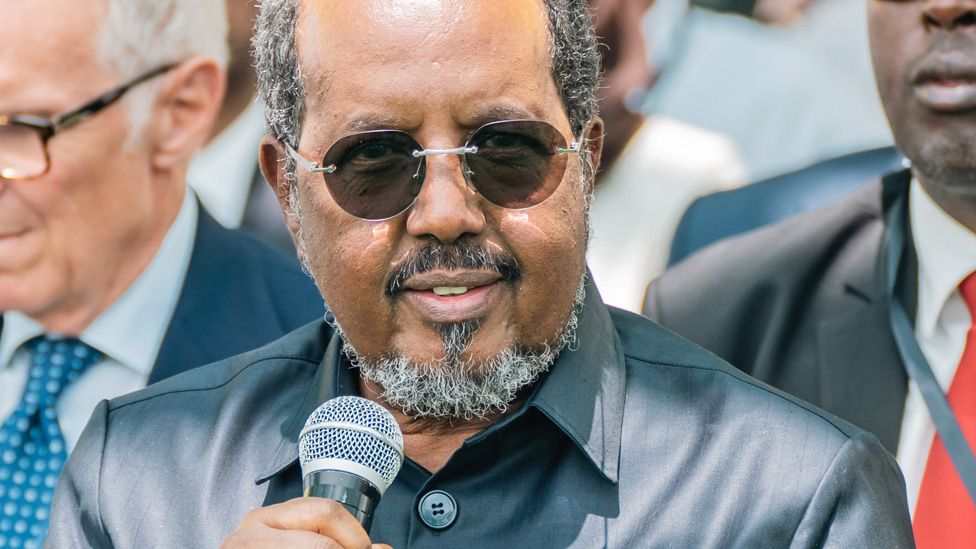Somali authorities have arrested four TikTok users for allegedly insulting President Hassan Sheikh Mohamud in a viral dance video, sparking fresh debate over freedom of expression and social media regulation in the East African nation. The video, which shows several young men dancing to a remixed version of a campaign song from the president’s 2022 election bid with altered, derogatory lyrics, has been widely circulated on TikTok and other platforms despite the original being deleted.
Police confirmed that the suspects are in custody and will face formal charges, although authorities have provided few additional details since the arrests. This marks the first time a high-profile politician has been directly targeted in a social media video in Somalia, though influencers have previously faced arrests for spreading clan-based insults, incitement, or content deemed “immoral.”
In August 2024, seven Somali TikTokers were sentenced to six months in prison by a Mogadishu court for provoking civil unrest and spreading immoral content, highlighting a growing trend of government action against social media creators. Police spokesman Gen Abdifatah Aden warned the public that anyone posting content that disrespects national institutions or leaders would “face the full force of the law.”
The recent arrests have reignited public discussion over the role of social media platforms like TikTok in Somalia. Supporters of the young men argue that the content was a form of satire and political commentary, while others defend the government’s action, emphasizing that freedom of expression should not extend to content that undermines national governance, particularly in a country with fragile political institutions.
TikTok has become extremely popular in Somalia and within the Somali diaspora, especially among youth, who use the platform for entertainment, business promotion, and political commentary. In 2023, the Somali government considered banning TikTok over concerns about national security, misinformation, and the spread of content deemed harmful to social and moral values. While the ban was never implemented due to strong public opposition, officials have repeatedly warned that the platform is increasingly being used to circulate extremist propaganda, defamatory material, and other socially destabilizing content.
The arrests underscore Somalia’s ongoing struggle to balance social media freedoms with national security and social cohesion. As TikTok continues to play a central role in youth culture and political discourse, the case may set a precedent for how authorities handle online criticism of public figures and the boundaries of acceptable digital expression in the country.













Leave a comment